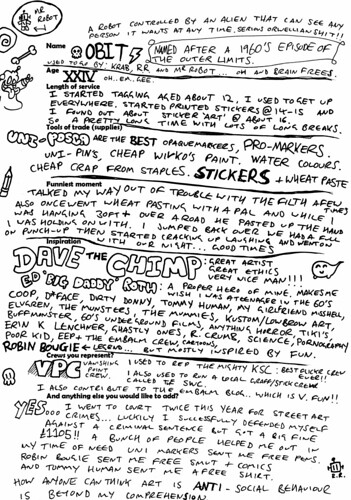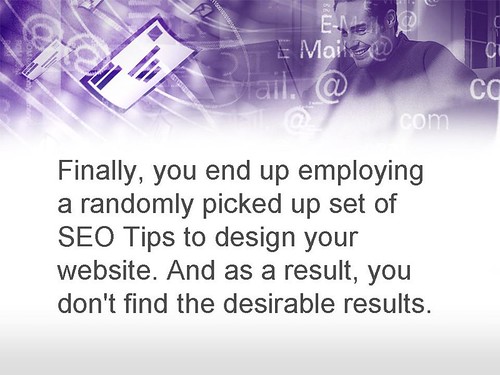If you don't know much about Justin Bieber's rise to superstardom, James Parker provides a good primer:
How did he do it? With YouTube, that’s how. Kissed in his cradle by the witch of the Web, Justin was throwing up little promo reels by the time he was 12. Singing a Brian McKnight song into the bathroom mirror. Or sitting on some municipal steps somewhere, busking mightily about the Lord: “You’re my God and my Fa-ther!” he bellows through the legs of passersby, the wooden body of his guitar reverberating with his shouts. ...
Bieber wasn’t from the Disney factory, and he didn’t have a show on Nickelodeon, so the marketing plan was skewed toward his already established constituency in social media: lots of Facebooking and YouTubing and sugary tweets to his millions-strong Twitter army.
Blogger Andrew Trench recently presented a theory on the threshold of when Internet penetration starts to matter, writing:
Social networks have also been given plenty of credit for the revolution unfolding in Egypt.
So I went and had a look at the numbers over on www.internetworldstats.com to see what they could tell us about these two scenarios. Well, fascinatingly, both Egypt and Tunisia have seen a massive growth in internet users and internet penetration over the last 10 years.
Both have now got internet penetration of over 20% and in Tunisia's case it was as high as 34%.While it is clearly simplistic to over-state this factor and there must be many more drivers contributing to such a rapid political uprising, it is obviously a factor as evidenced by the Egyptian regime pulling the plug on the country's internet access to try and block the rising tide of revolt.
My back-of-napkin theory is this: that a rapid increase in internet penetration in a repressive regime does play an important role as it provides an unfettered channel of communication allowing disaffected citizens to share views - and more importantly - to rapidly organise and mobilise.
If Egypt and Tunisia are valid case studies, it looks like internet penetration of around 20% is the mark.
Geopolitics & Macroeconomics adds:
Internet penetration: Social networking sites were critical to sustaining the momentum in the recent protests. The internet penetration in Egypt is 16%. In Libya, it is a meagre 5% [1]. The unrest in Libya has thus far remained concentrated in regions that are geographically distant from the seat of ‘real' power (see more on this below). The dependence of momentum on internet communication is far greater in Libya than in Egypt where protests began in Cairo itself.
Taking the conversation to Pakistan, Sabene Saigol writes, on BrandRepublic:
Perhaps one reason for this is that we're still not that used to communicating via the ‘net - maybe we need greater broadband and internet penetration. Personally I think it is more to do with culture - while Pakistani internet users are savvy to using social media to connect with friends, I feel they have not yet ‘crossed over' to seeing SM as a means for professional communications - or even wider social communications that go beyond their immediate circle. Yes, there are no doubt savvy people - both within marketing and tech circles, and outside - however, these people are likely a tiny proportion of the total number of ‘net and social media users.
Surface Encounters
MLB creates new seven-day DL for concussions
![]() Major League Baseball and its players union have announced a new set of protocols for dealing with concussions, including the creation of a new seven-day disabled list for players with the injury.
Major League Baseball and its players union have announced a new set of protocols for dealing with concussions, including the creation of a new seven-day disabled list for players with the injury.
Surface Encounters
Clown Charged With Raping Child in California - AOL <b>News</b>
A clown who works backyard parties and special events was charged today with multiple counts of child rape that could send him to prison for life if convicted.
Surface Encounters
New York Yankee <b>News</b>: Granderson, Chavez, Joe West and Barry Bonds <b>...</b>
All the Yankee news you need. ... New York Yankee News: Granderson, Chavez, Joe West and Barry Bonds. Dsc00073_tiny by jscape2000 on Mar 29, 2011 6:00 AM EDT in News � Tweet. 12 comments; Story-email Email; Printer Print. "I got it! ...
Surface Encounters
With few surprises, techies were underwhelmed with Apple’s iPad 2 announcement, but I’m confident that consumers will be thrilled with the product. Apple already had a massive lead in the consumer tablet market it created, and these “underwhelming” upgrades should keep the company comfortably ahead. Apple has given competitors an opening by sticking to 3G, and it did not further pressure them with a lower entry price point or higher-resolution display. However, Apple has three critical advantages.
1. Brand: When consumers are thinking about tablets, they say they are buying an “iPad,” not a “tablet.” The iPad was already the category and volume leader, and the iPad 2 builds on that. In this respect, Apple actually benefits from the crowd of new tablets hitting the market. If there were only one or two strong competitors, consumers would be able to weigh the pros and cons of each offering, but with dozens and dozens of options hitting the market over the next few months, decision paralysis can set in and many consumers will throw up their hands and make the “safe” choice: the iPad.
2. iTunes: The iPad is still the only tablet on the market with a huge digital marketplace for movies, TV shows, and music. Some competitors are taking steps in this direction (e.g., Samsung’s Hub), but iTunes remains a significant competitive advantage.
3. App Store: If all you want to do is browse the Web and check e-mail, any tablet will probably suffice. However, Apple has an enormous lead in purpose-built apps. The Android ecosystem is strong and app availability should improve significantly over time, but the iPad 2 is considerably more versatile than any of its competitors right now, and it appears unlikely to lose its lead any time in the near future.
So if you are competing with Apple, what should you do? Rather than copying Apple’s products, copy its old advertising tag line and Think Different.
Apple’s brand is focused on creative types (or those who aspire to be), which is why it spends so much effort creating things like GarageBand. Competitors should target IT managers, knowledge workers, outdoorsy people, or some other group and build software and hardware combinations better suited to those use cases. Of course, this will take imagination and the ability to tie hardware, software, and services together to build unique experiences. There are some companies thinking outside the box (HTC and RIM have clearly differentiated products on their roadmaps), but for the vendors who are trying to out-Apple Apple… good luck. Here are some pointers, you’re going to need them:
• Based on Apple’s financials, it is clear that the iPad with WiFi is Apple’s volume product and 3G versions are merely gravy. Why is the competition only targeting the gravy?
• iTunes remains a significant competitive advantage for Apple – I cannot easily explain to novices how to get a movie onto the XOOM. Rivals need an “iTunes” of their own, but having one just achieves parity with Apple, so partnering is an acceptable approach. However, half measures are not enough; digital media stores must include movies (including rentals) and TV shows and music. If multiple partners are used, the tablet vendor still needs to provide a common interface and single account/billing relationship.
• Nintendo has a significant base of game developers targeting the 3DS; if you cannot muster equivalent resources (for gaming, media playback, or some other use), adding 3D to your tablet is just a gimmick.
• Apple’s rivals can compete on 4G, higher-resolution displays, or a lower price. Even speed is a potential differentiator from a technical perspective; NVIDIA has quad-core processors sampling this month, so rivals could build even faster tablets for this holiday season. However, I must still caution vendors that all of these factors are irrelevant if consumers do not want your product.
Titles from major book publisher Random House will now appear in Apple’s iBooks store. The news was one of many talking points covered earlier today at Apple’s media event. Random House had previously been the only major publisher not represented in Apple’s popular iOS book store, as it was not willing to grant Apple the 30% cut taken on titles sold through iBooks. The addition of Random House is a major coup for Apple as it looks to compete with the likes of Amazon’s Kindle bookstore and other popular offerings. Hit the break for Apple’s full press release.
Random House, Inc. Makes Entire US Catalog of 17,000 ebooks Available on Apple’s iBookstore
iBookstore Now Features More than 2,500 Publishers, Including All Six Major Trade Publishers
SAN FRANCISCO—March 2, 2011—Apple® today announced that Random House, Inc., the largest trade book publisher in the US, has made its full catalog of 17,000 ebooks available on Apple’s iBookstore℠, including bestsellers by Stieg Larsson, John Grisham, Dan Brown, Danielle Steel, Laura Hillenbrand, Cormac McCarthy, Lee Child and many more of the world’s preeminent authors. Starting today, customers can pre-order upcoming releases from Random House including Lisa Gardner’s “Love You More,” Suze Orman’s “The Money Class” and Jean Auel’s “The Land of Painted Caves.” With the addition of Random House, the iBookstore now offers ebooks from all six major trade publishers and thousands of independent publishers.
“We are delighted that Apple’s iBookstore now will be carrying Random House’s US ebooks for the first time,” said Markus Dohle, Random House’s Chairman and CEO. “And we look forward to bringing our 17,000 ebooks to Apple customers.”
“We’re thrilled to offer Random House on the iBookstore,” said Eddy Cue, Apple’s vice president of Internet Services. “iBookstore customers have already downloaded more than 100 million books in less than one year, and we think they’ll love being able to choose from Random House’s incredible selection of titles to enjoy on their iPad, iPhone and iPod touch.”
iBookstore customers can choose from a wide selection of illustrated and video-enhanced books that look incredible on iPad™, including Jay-Z’s memoir “Decoded” and Bing West’s “The Wrong War”; bestselling children’s series such as Magic Tree House and Junie B. Jones; and cookbooks by Martha Stewart, Rachael Ray, and the Barefoot Contessa, Ina Garten. Random House, Inc. comprises more than 80 adult and children’s US publishing imprints including Alfred A. Knopf, Doubleday, Crown, Pantheon Books, Vintage, Ballantine and Bantam.
The iBookstore, included in Apple’s free iBooks® app, is the best way to browse, buy and read books on your iPad, iPhone® and iPod touch®. iBookstore offers ebooks from more than 2,500 publishers in more than 20 categories, including Mysteries & Thrillers, Biographies & Memoirs, Cookbooks, Children’s & Teen, Humor, Romance, Business and Travel.
Apple designs Macs, the best personal computers in the world, along with OS X, iLife, iWork, and professional software. Apple leads the digital music revolution with its iPods and iTunes online store. Apple is reinventing the mobile phone with its revolutionary iPhone and App Store, and has recently introduced its magical iPad which is defining the future of mobile media and computing devices.
Surface Encounters
Surface Encounters
What’s affecting me, my clients and other small-business owners this week.
THE QUAKE IN JAPAN, A GOOFBALL IN VENEZUELA Japanese earthquake damage is estimated at $310 billion and could be the costliest natural disaster ever. Japanese exports suffer. Kate Rogers of Fox revisits how to protect your business from catastrophe. “Small-business owners can determine if they should be seeking disaster coverage by weighing their investment in the business itself, among other factors. If the business is the sole form of income, the risk is much greater than if it is a hobby or part-time project.” Elsewhere around the world, the war industry gets a boost in Libya. And Hugo Chávez of Venezuela says capitalism may have destroyed life on Mars.
REAL ESTATE FALLS, JOBS RISE Mark Thoma says commodity prices are increasing because of world demand. A small-business owner in Georgia is trying not to pass on the cost of high gas prices. Detroit’s population declines 25 percent. Existing-home sales fall to the lowest on record. Meredith Whitney, an investment adviser, says, “Unless the government comes out with a 50-year mortgage, this market is in trouble longer term.” Gallup’s job-creation index is the highest since September 2008. Durable goods orders fall.
ANNE HATHAWAY AND WARREN BUFFETT The Fed earns $79 billion and predicts that the recovery is taking hold. Nonetheless, one of its officials warns that the United States is approaching insolvency. Meanwhile, Warren E. Buffett predicts growth but some think his company’s stock is buoyed by Anne Hathaway. Household balances sheets continue to improve. Scott Grannis says “the Philadelphia Fed Business Outlook Survey came in very strong. It hasn’t been this strong since the economic boom times of the early 1980s. It’s very difficult to ignore the mounting evidence of a strong economic recovery.” Architect billings increased slightly in February.
DEFICIT THRILLS The Committee for a Responsible Federal Budget is thrilled to see 64 senators calling for comprehensive deficit reduction. But Stan Collender, a budget expert, isn’t thrilled at all: “Does a letter that is so vanilla that it could have been written at any time over the past 40 years really indicate any movement on the current budget debate?” James Pethokoukis of Reuters says he thinks President Obama’s budget is wildly dangerous.
A NEW DEFINITION OF SMALL BUSINESS Timothy F. Geithner says that American small businesses need greater access to capital to spur innovation. The Small Business Administration, facing even more cuts, is for the first time in more than 25 years proposing to change the way it defines small businesses. JPMorgan Chase says it will cease its debit card rewards program because of new legislation that would restrict fees. Missouri gets $27 million in incentives for small-business growth. The Small Business Savings Account Act makes its way through Congress.
TAKING CREDIT The health care legislation celebrates its first anniversary and Ezra Klein defends it by saying, “Is it a perfect piece of legislation? Not even close. Will everything work as expected? Almost certainly not. But for all its flaws, it’s a good law. And it’s worth trying.” Many small businesses are still not taking advantage of the health care tax credit.
TECHNOLOGY UPGRADES A Google project manager pitches cloud computing: “Web-based software is much less costly for buyers than traditional software, and programmers can be so much more innovative, that it’s worthwhile for an entrepreneur to say, O.K., let’s start from scratch.” Paul Mah, an information technology expert, gives us eight reasons to upgrade to Internet Explorer 9. Firefox 4 is released. Microsoft jumps to second in video search and introduces a new PC tool for small business. Netflix suffers an outage. BlackBerry’s tablet is scheduled to arrive in April. AT&T buys T-Mobile but not for the reason you think. And boy. has computer technology come a long way in 10 years.
THE GROWING APPS MARKET Information Week reports that 38 percent of small- and medium-size businesses depend on mobile apps. Amazon introduces an Android app store, and Apple is not pleased. Minda Zetlin of Inc. asks if you should make a tablet app for your business: “The answer is likely a yes if one, your product or service is one where having tablet access could benefit customers; and two, your customers are the type who use tablets.” Just in time: a flood of royal wedding apps.
SPEAKING OF THE BIG WEDDING General Electric releases a much-needed William and Kate refrigerator. Jack Daniels introduces a new product — perhaps to help us forget the royal wedding. Danny Wong gives us three winning ideas to consider. A dating site features a new single man every day. Score plans an e-business learning Web site for small business. Small Business Television is rebranding itself and has introduced a new Web site. Small Business Opportunities magazine is doing the same. A small business introduces its first electric car. Sales of e-books have doubled. The group buying industry is projected to grow to $2.7 billion this year.
TWITTER’S TAX BREAKS Casey Hibbard explains how one company used social media to make $300,000 in a weekend. Robert Scoble discovers the future of work: “Just when we thought we figured out the new ’social enterprise’ market along comes Convofy.” Twitter shows San Francisco’s businesses how to save a bundle on taxes. A one-legged wrestler shows us how to become a national champ.
IT’S GOOD TO BE GREEN A woman in Canada gets a standing ovation for being green. The Manhattan Chamber of Commerce holds its green marketing event on Wednesday. The Clinton Global Initiative holds its university conference this week with a focus on entrepreneurship and a live webcast.
ADVICE FOR SXSW: HAND OUT PILLOWS The Global Entrepreneurship Congress meets in Shanghai this week. April 2 is International Pillow Fight Day. The South By Southwest conference: as seen from a bunch of social media video bloggers — which is yet another reason I won’t attend next year. American Airlines offers a big promo for California business travelers. John Jantsch wants to know the worst business advice you ever received. A third-base coach gives life advice.
SEARCHING FOR HELP WITH SEARCH An American Express survey finds that more than half of small-business owners say they need help with search-engine marketing. A video about why it’s not important to go viral goes viral. Dharmesh Shah shares a few low-cost advertising ideas for start-ups and cautions readers to “think of advertising not as a long-term traffic strategy but as a testing tool to improve your Web site and find out more about your ideal visitor.” An advertising blog discusses how to develop a relationship with the media. Lucy Thornton comes up with a few good marketing themes for April.
A 100-MILLION-MEMBER NETWORK LinkedIn officially reaches 100 million members. Seems like a good time to read the co-founder’s 10 rules for entrepreneurial success.
TRIED TALKING? Whitson Gordon of Lifehacker gives us his top 10 tricks for working while on the go. Example: “Whether it’s that old, dead iPod or the smartphone you’re already carrying with you, you probably have gigs of unused storage lying around waiting to be filled with portable apps, files and other digital travel necessities.” Melanie Brooks of Workawesome.com explains why she uses a leather day planner instead of a smartphone. Greg Schinkel warns against hiding behind our keyboards: “Before you hit ‘reply to all’ and send back a zinger to someone who maligned you, stop and go talk to the person.”
THIS WEEK’S AWARDS
BEST WAY TO GET YOUR CUSTOMERS TO LOVE YOU Ben Yoskovitz talks about the benefits of delighting your customers: “The rewards are immense. Loyal, rabid fans tweet shamelessly about how incredible you are, how valuable your Web application is and how successful your start-up will be.”
BEST WAY TO MARKET WITHOUT A BUDGET Shisha Dublin-Green explains how to market without a marketing budget: “Form an alliance: if you have a hair salon that’s mostly frequented by women with young children and elderly women, you can offer a service whereby you arrange to do their grocery shopping whilst they’re in the salon. You may decide to form an alliance with a local reputable grocer or delivery service to provide this for your customers. This could also be a way to reach out to new customers via your local grocer.”
BEST ADVICE FOR BOOTSTRAPPERS The Smart Bear says that the things money cannot buy are still the most valuable things: “Show proof of your ability to master the things money cannot buy — your ability to learn, change and improve.”
THIS WEEK’S QUESTION: How do you bring in customers without spending a lot? We do free webinars every month.
Gene Marks owns the Marks Group PC, a Bala Cynwyd, Pa., consulting firm that helps clients with customer relationship management. You can follow him on Twitter.
What’s affecting me, my clients and other small-business owners this week.
THE QUAKE IN JAPAN, A GOOFBALL IN VENEZUELA Japanese earthquake damage is estimated at $310 billion and could be the costliest natural disaster ever. Japanese exports suffer. Kate Rogers of Fox revisits how to protect your business from catastrophe. “Small-business owners can determine if they should be seeking disaster coverage by weighing their investment in the business itself, among other factors. If the business is the sole form of income, the risk is much greater than if it is a hobby or part-time project.” Elsewhere around the world, the war industry gets a boost in Libya. And Hugo Chávez of Venezuela says capitalism may have destroyed life on Mars.
REAL ESTATE FALLS, JOBS RISE Mark Thoma says commodity prices are increasing because of world demand. A small-business owner in Georgia is trying not to pass on the cost of high gas prices. Detroit’s population declines 25 percent. Existing-home sales fall to the lowest on record. Meredith Whitney, an investment adviser, says, “Unless the government comes out with a 50-year mortgage, this market is in trouble longer term.” Gallup’s job-creation index is the highest since September 2008. Durable goods orders fall.
ANNE HATHAWAY AND WARREN BUFFETT The Fed earns $79 billion and predicts that the recovery is taking hold. Nonetheless, one of its officials warns that the United States is approaching insolvency. Meanwhile, Warren E. Buffett predicts growth but some think his company’s stock is buoyed by Anne Hathaway. Household balances sheets continue to improve. Scott Grannis says “the Philadelphia Fed Business Outlook Survey came in very strong. It hasn’t been this strong since the economic boom times of the early 1980s. It’s very difficult to ignore the mounting evidence of a strong economic recovery.” Architect billings increased slightly in February.
DEFICIT THRILLS The Committee for a Responsible Federal Budget is thrilled to see 64 senators calling for comprehensive deficit reduction. But Stan Collender, a budget expert, isn’t thrilled at all: “Does a letter that is so vanilla that it could have been written at any time over the past 40 years really indicate any movement on the current budget debate?” James Pethokoukis of Reuters says he thinks President Obama’s budget is wildly dangerous.
A NEW DEFINITION OF SMALL BUSINESS Timothy F. Geithner says that American small businesses need greater access to capital to spur innovation. The Small Business Administration, facing even more cuts, is for the first time in more than 25 years proposing to change the way it defines small businesses. JPMorgan Chase says it will cease its debit card rewards program because of new legislation that would restrict fees. Missouri gets $27 million in incentives for small-business growth. The Small Business Savings Account Act makes its way through Congress.
TAKING CREDIT The health care legislation celebrates its first anniversary and Ezra Klein defends it by saying, “Is it a perfect piece of legislation? Not even close. Will everything work as expected? Almost certainly not. But for all its flaws, it’s a good law. And it’s worth trying.” Many small businesses are still not taking advantage of the health care tax credit.
TECHNOLOGY UPGRADES A Google project manager pitches cloud computing: “Web-based software is much less costly for buyers than traditional software, and programmers can be so much more innovative, that it’s worthwhile for an entrepreneur to say, O.K., let’s start from scratch.” Paul Mah, an information technology expert, gives us eight reasons to upgrade to Internet Explorer 9. Firefox 4 is released. Microsoft jumps to second in video search and introduces a new PC tool for small business. Netflix suffers an outage. BlackBerry’s tablet is scheduled to arrive in April. AT&T buys T-Mobile but not for the reason you think. And boy. has computer technology come a long way in 10 years.
THE GROWING APPS MARKET Information Week reports that 38 percent of small- and medium-size businesses depend on mobile apps. Amazon introduces an Android app store, and Apple is not pleased. Minda Zetlin of Inc. asks if you should make a tablet app for your business: “The answer is likely a yes if one, your product or service is one where having tablet access could benefit customers; and two, your customers are the type who use tablets.” Just in time: a flood of royal wedding apps.
SPEAKING OF THE BIG WEDDING General Electric releases a much-needed William and Kate refrigerator. Jack Daniels introduces a new product — perhaps to help us forget the royal wedding. Danny Wong gives us three winning ideas to consider. A dating site features a new single man every day. Score plans an e-business learning Web site for small business. Small Business Television is rebranding itself and has introduced a new Web site. Small Business Opportunities magazine is doing the same. A small business introduces its first electric car. Sales of e-books have doubled. The group buying industry is projected to grow to $2.7 billion this year.
TWITTER’S TAX BREAKS Casey Hibbard explains how one company used social media to make $300,000 in a weekend. Robert Scoble discovers the future of work: “Just when we thought we figured out the new ’social enterprise’ market along comes Convofy.” Twitter shows San Francisco’s businesses how to save a bundle on taxes. A one-legged wrestler shows us how to become a national champ.
IT’S GOOD TO BE GREEN A woman in Canada gets a standing ovation for being green. The Manhattan Chamber of Commerce holds its green marketing event on Wednesday. The Clinton Global Initiative holds its university conference this week with a focus on entrepreneurship and a live webcast.
ADVICE FOR SXSW: HAND OUT PILLOWS The Global Entrepreneurship Congress meets in Shanghai this week. April 2 is International Pillow Fight Day. The South By Southwest conference: as seen from a bunch of social media video bloggers — which is yet another reason I won’t attend next year. American Airlines offers a big promo for California business travelers. John Jantsch wants to know the worst business advice you ever received. A third-base coach gives life advice.
SEARCHING FOR HELP WITH SEARCH An American Express survey finds that more than half of small-business owners say they need help with search-engine marketing. A video about why it’s not important to go viral goes viral. Dharmesh Shah shares a few low-cost advertising ideas for start-ups and cautions readers to “think of advertising not as a long-term traffic strategy but as a testing tool to improve your Web site and find out more about your ideal visitor.” An advertising blog discusses how to develop a relationship with the media. Lucy Thornton comes up with a few good marketing themes for April.
A 100-MILLION-MEMBER NETWORK LinkedIn officially reaches 100 million members. Seems like a good time to read the co-founder’s 10 rules for entrepreneurial success.
TRIED TALKING? Whitson Gordon of Lifehacker gives us his top 10 tricks for working while on the go. Example: “Whether it’s that old, dead iPod or the smartphone you’re already carrying with you, you probably have gigs of unused storage lying around waiting to be filled with portable apps, files and other digital travel necessities.” Melanie Brooks of Workawesome.com explains why she uses a leather day planner instead of a smartphone. Greg Schinkel warns against hiding behind our keyboards: “Before you hit ‘reply to all’ and send back a zinger to someone who maligned you, stop and go talk to the person.”
THIS WEEK’S AWARDS
BEST WAY TO GET YOUR CUSTOMERS TO LOVE YOU Ben Yoskovitz talks about the benefits of delighting your customers: “The rewards are immense. Loyal, rabid fans tweet shamelessly about how incredible you are, how valuable your Web application is and how successful your start-up will be.”
BEST WAY TO MARKET WITHOUT A BUDGET Shisha Dublin-Green explains how to market without a marketing budget: “Form an alliance: if you have a hair salon that’s mostly frequented by women with young children and elderly women, you can offer a service whereby you arrange to do their grocery shopping whilst they’re in the salon. You may decide to form an alliance with a local reputable grocer or delivery service to provide this for your customers. This could also be a way to reach out to new customers via your local grocer.”
BEST ADVICE FOR BOOTSTRAPPERS The Smart Bear says that the things money cannot buy are still the most valuable things: “Show proof of your ability to master the things money cannot buy — your ability to learn, change and improve.”
THIS WEEK’S QUESTION: How do you bring in customers without spending a lot? We do free webinars every month.
Gene Marks owns the Marks Group PC, a Bala Cynwyd, Pa., consulting firm that helps clients with customer relationship management. You can follow him on Twitter.
Surface Encounters
FOCUS: Courageous workers at troubled nuclear plant endure tough <b>...</b>
Each of the employees of Tokyo Electric Power Co. and other workers engaged in containing damage at the stricken Fukushima Daiichi nuclear power plant is given 30 survival food crackers and a 180 milliliter pack of vegetable juice for ...
Surface Encounters
Surface Encounters
Surface Encounters
'CBS Evening <b>News</b>' Sinks To Record Lows, 'World <b>News</b>' Only Show To <b>...</b>
With the drumbeat of rumors that she is heading for the door, Katie Couric was likely looking for better ratings news than what she got Tuesday. Instead, the ratings for the first quarter of 2011 showed that the "CBS Evening News" drew ...
Surface Encounters

















